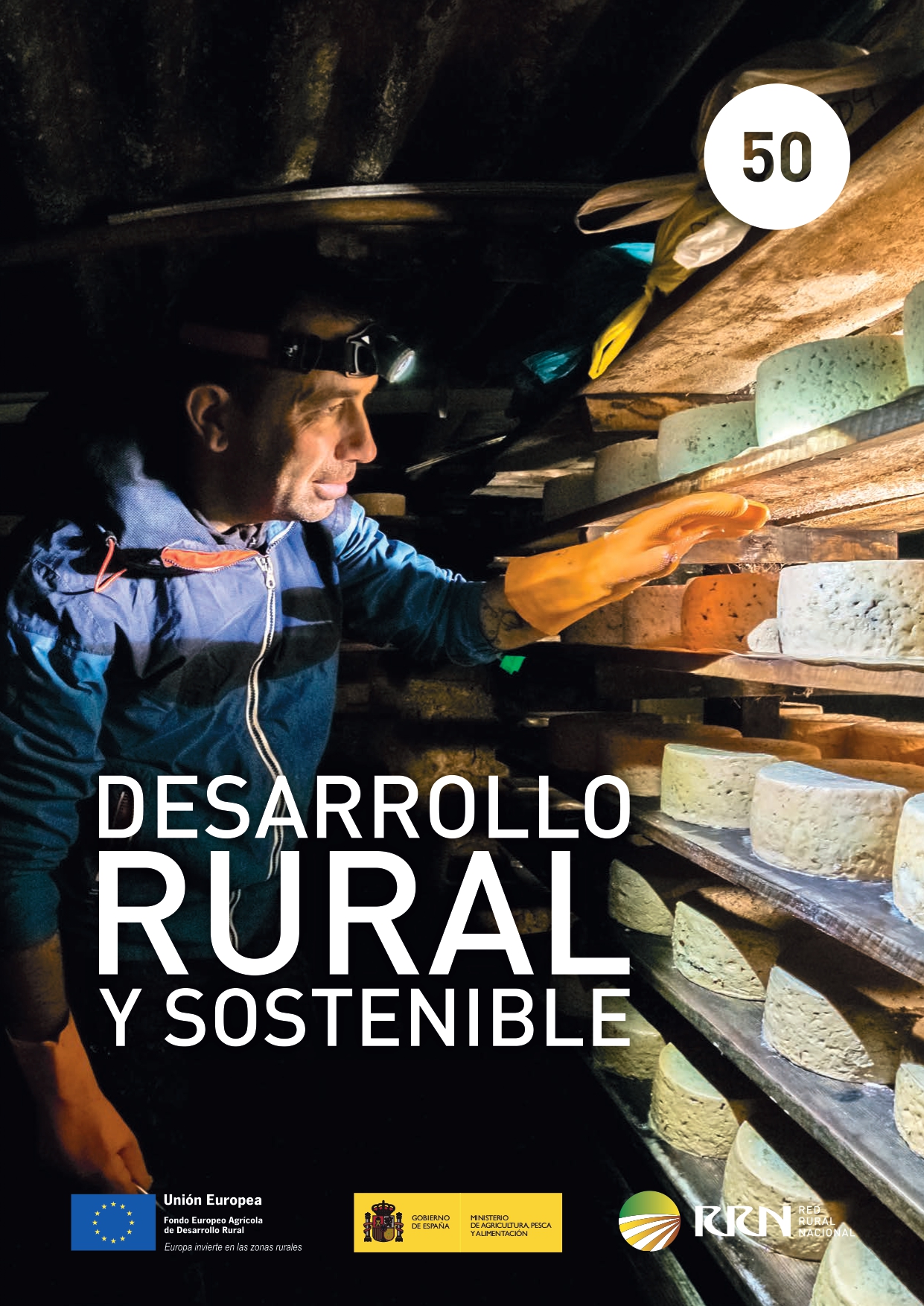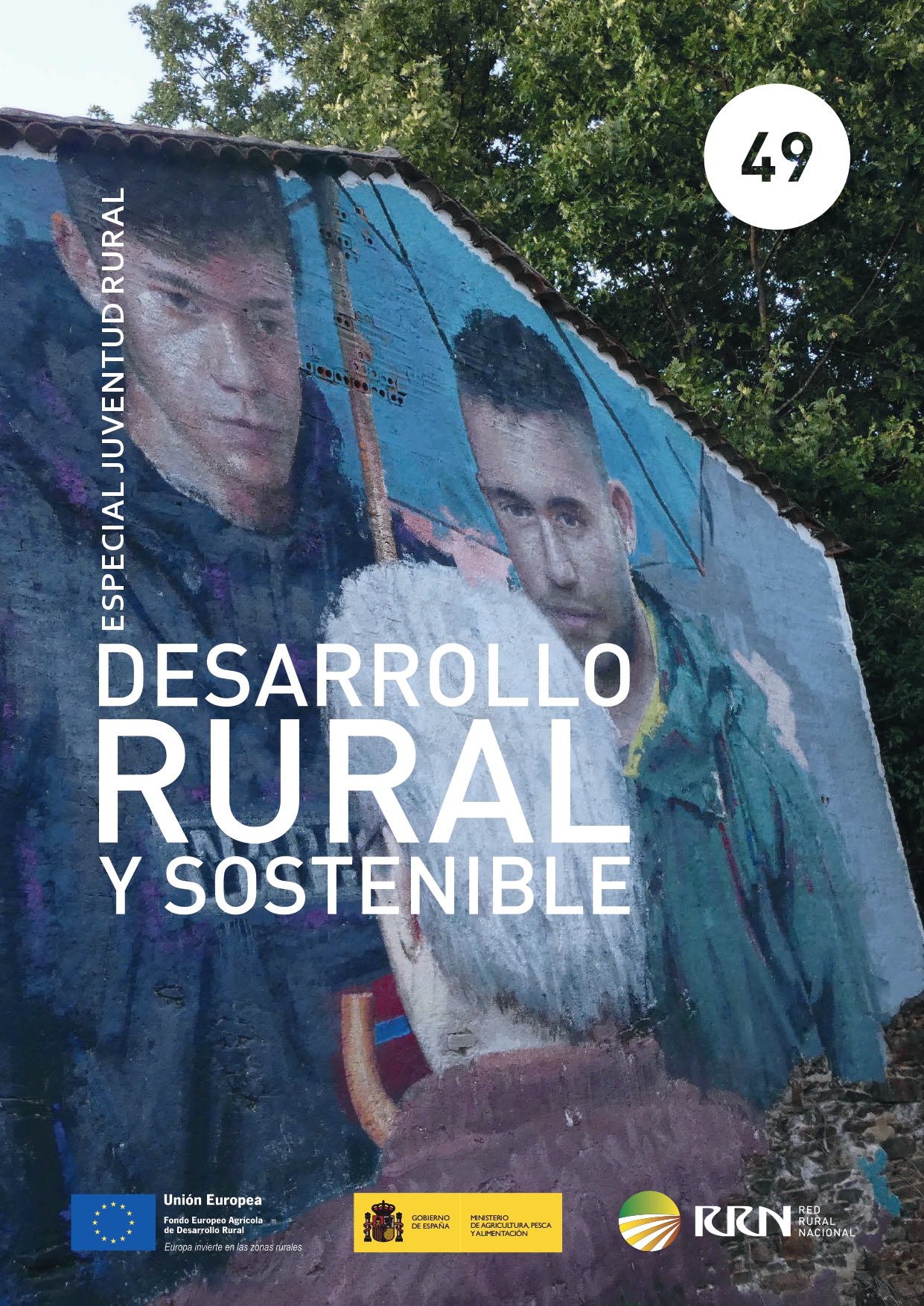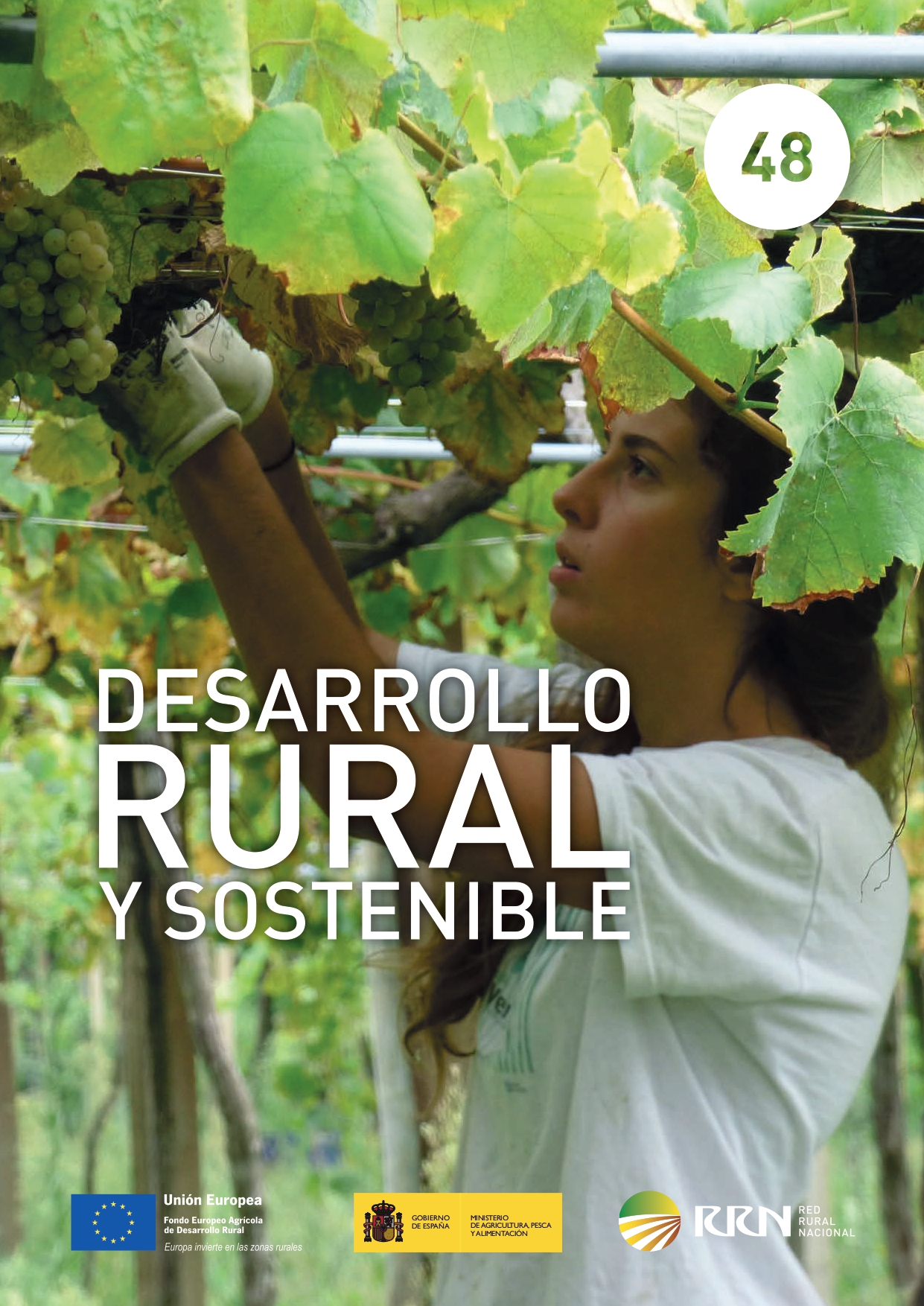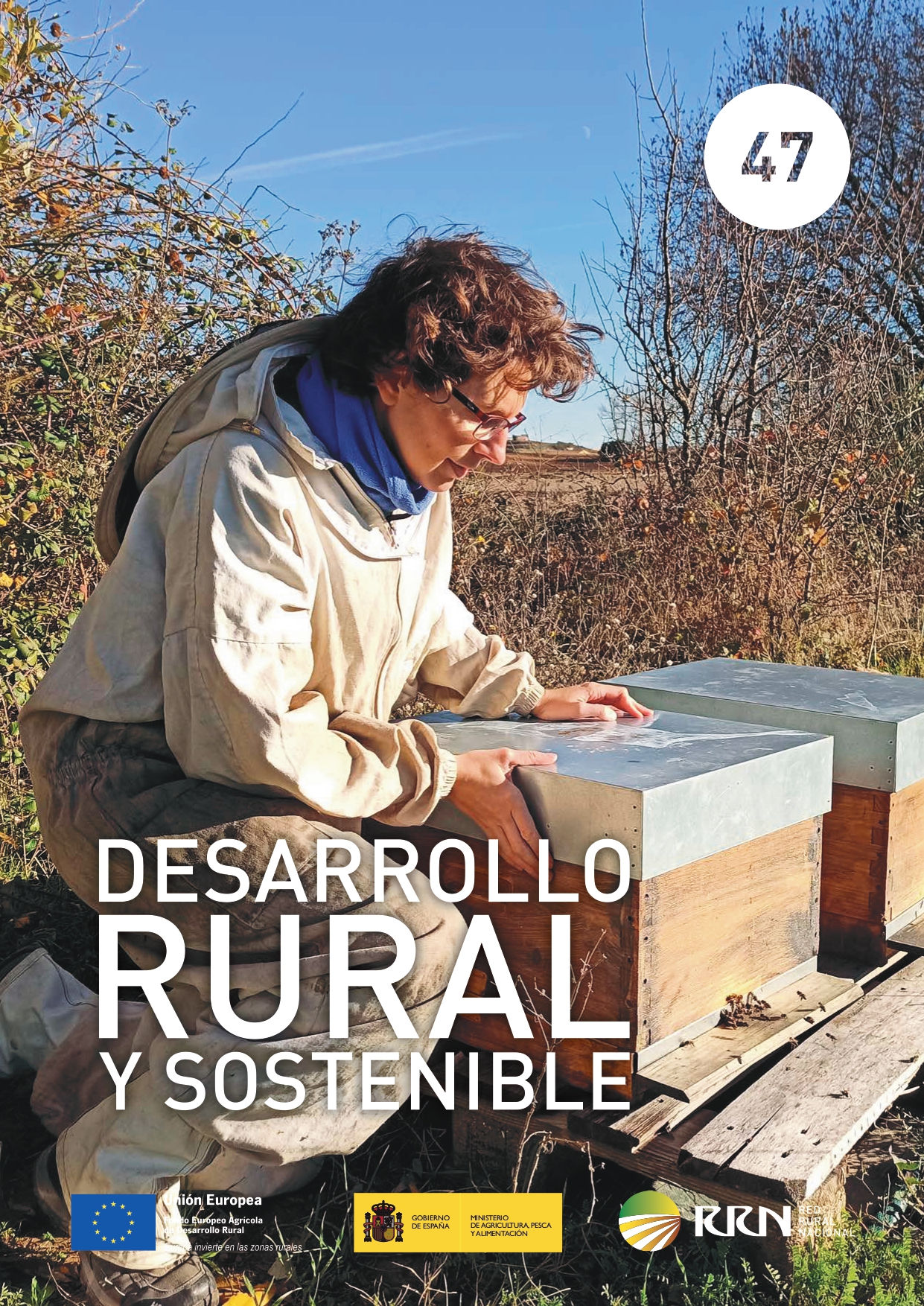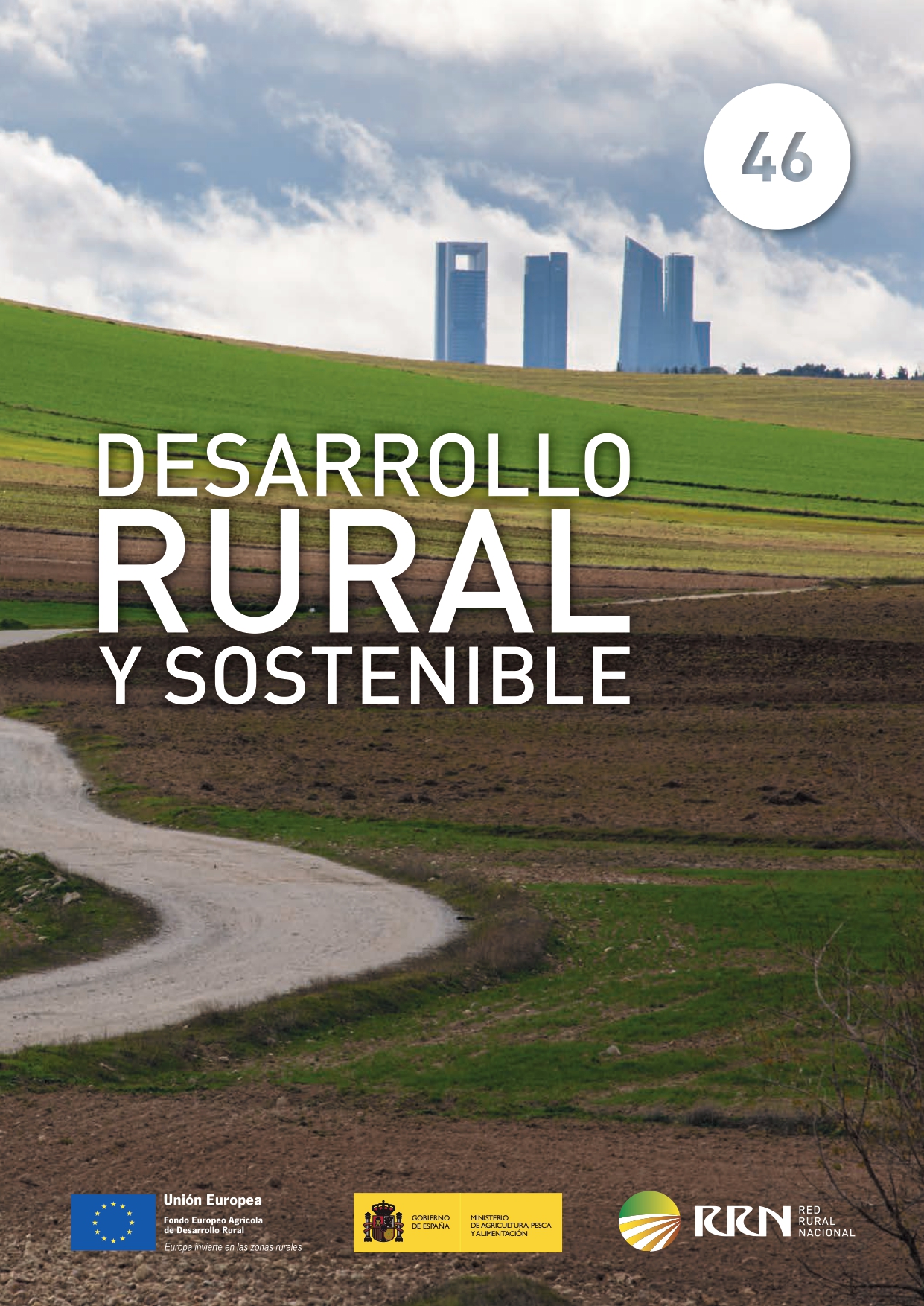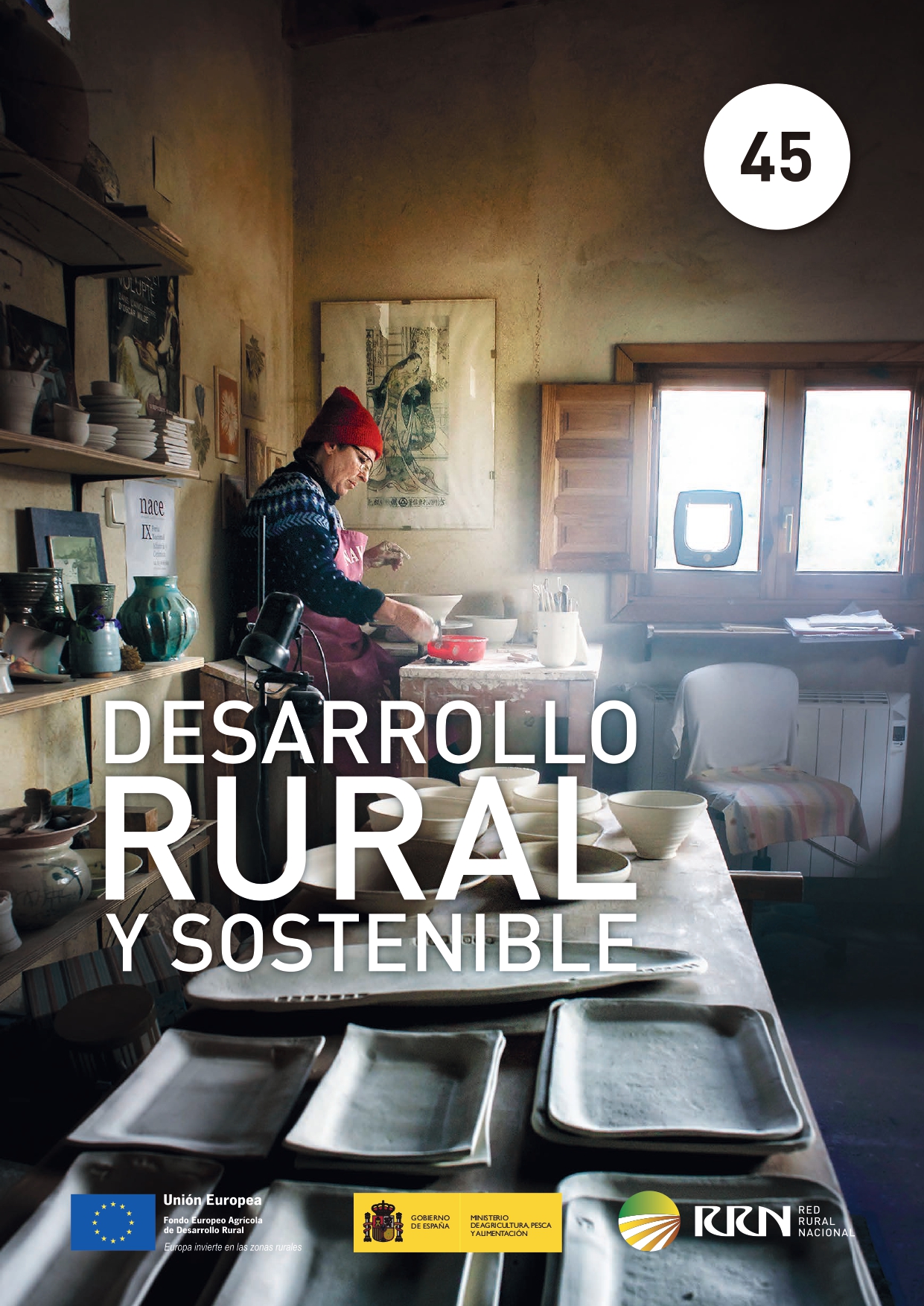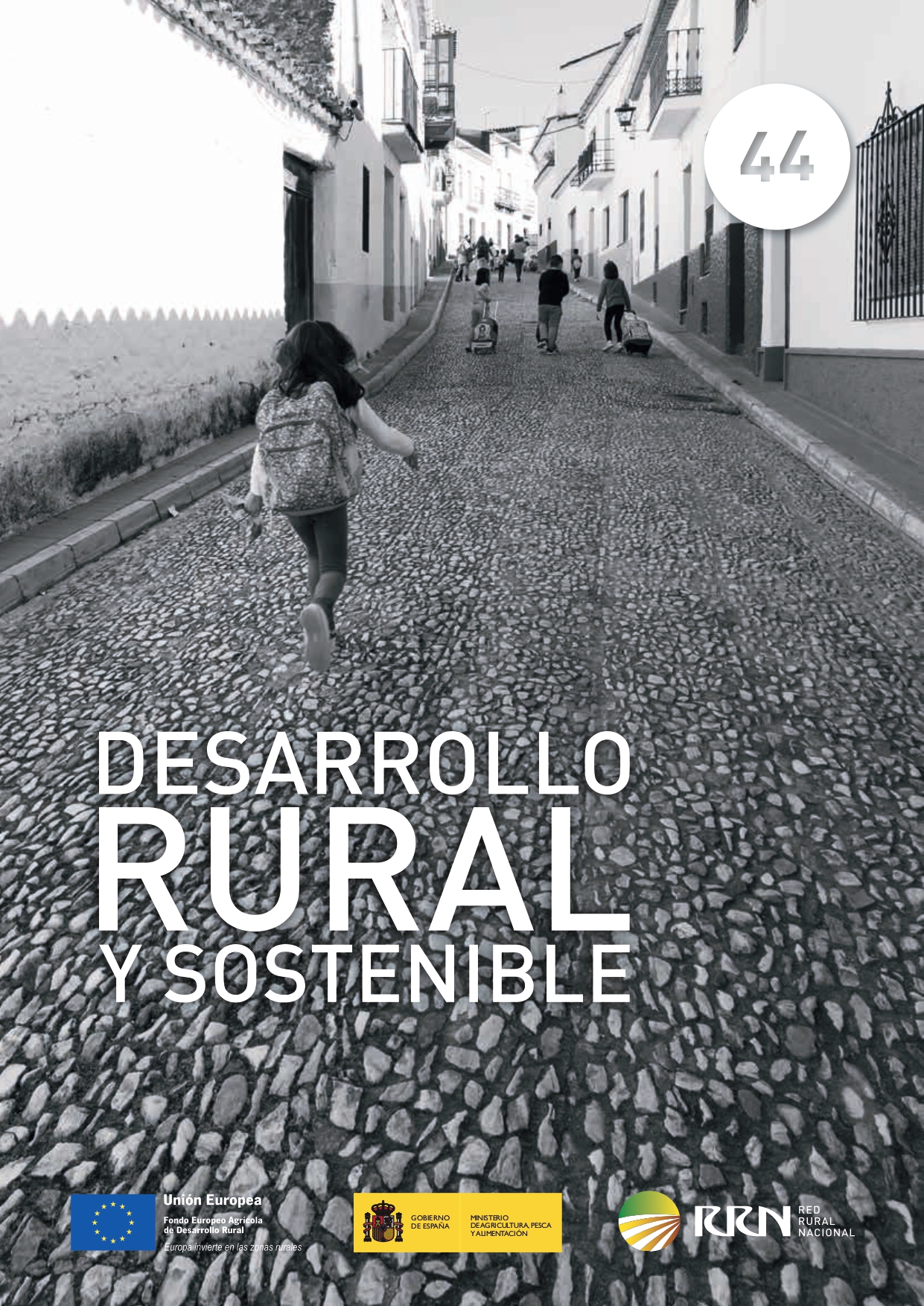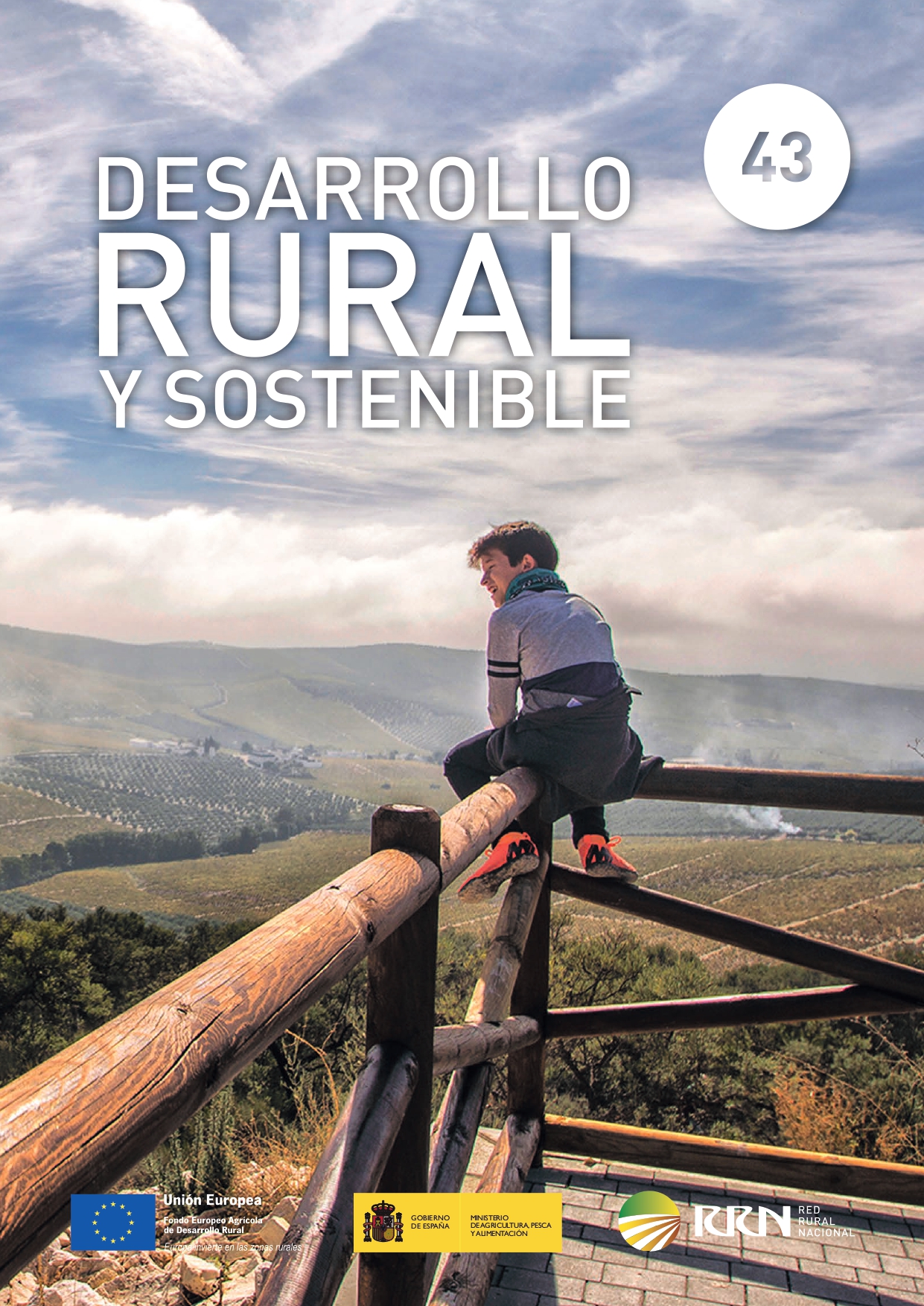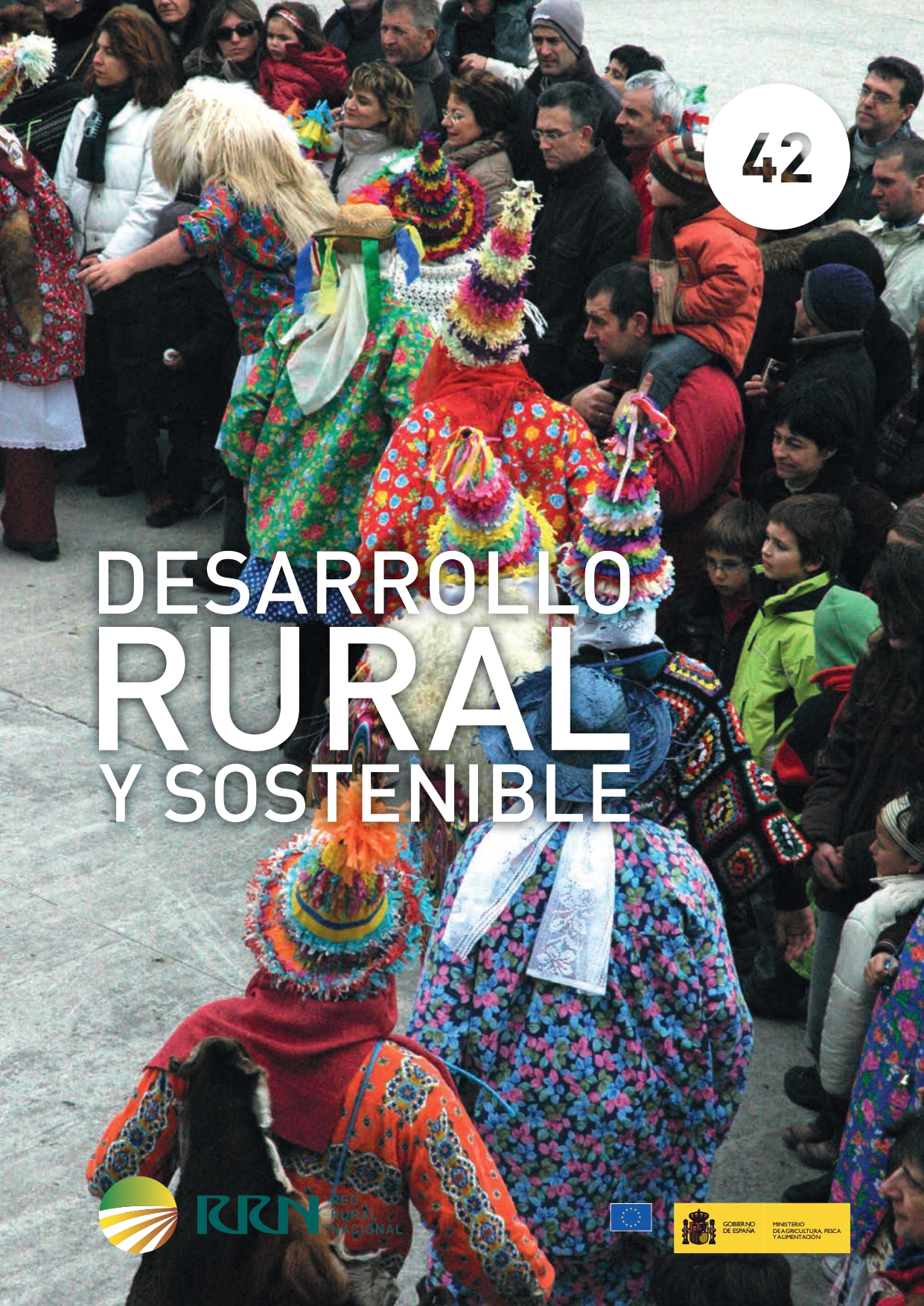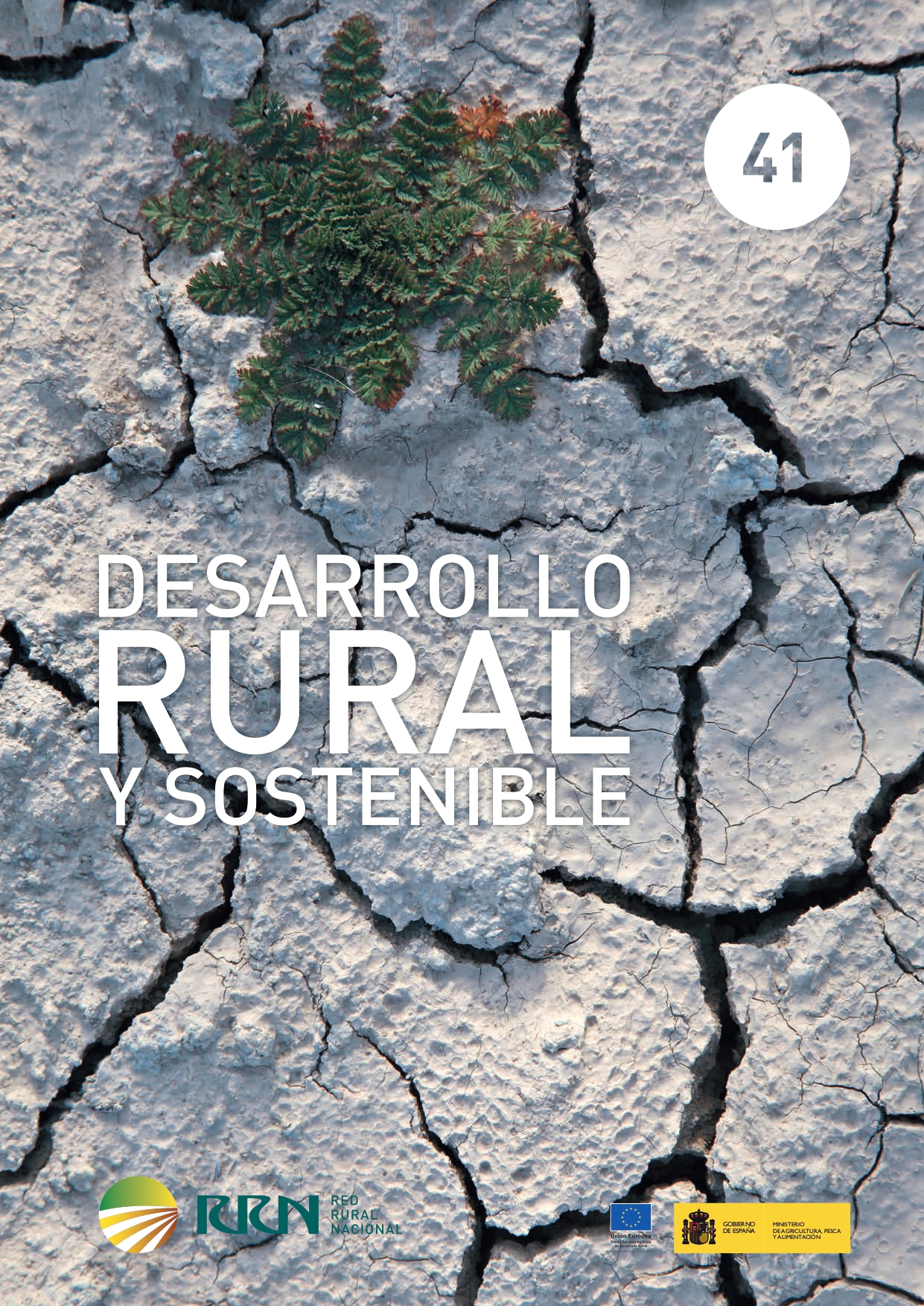- 16 de March de 2022
Culture, tradition, and innovation come together in this 50th issue. We interview Rozalén, who is proud of her status as a singer-songwriter and rural woman. Jaime Izquierdo Vallina writes about the importance of villages, key enclaves for the preservation of biodiversity and agroecosystems. And, among other topics, we discuss the technological and social advances being developed through Smart Rural 21 in several European towns, such as Ansó (Huesca); we talk about geolocation and remote sensing in extensive livestock farming; and we showcase some social innovation projects, such as those developed by the Grío Cultural Association and the company Rural Bridge.
- 01 de January de 2022
Rural youth dominate this special issue of the magazine: we interview Sara Cortés Bel, coordinator of the Young Rural Promoters; we discuss generational renewal with CSIC researcher Fernando E. Garrido and a digital platform launched by Young Farmers Network to facilitate this; we showcase some cooperative initiatives for access to land; and we discuss projects that promote youth development in non-agricultural rural areas, such as Rural Erasmus programs and intergenerational workshops.
- 30 de September de 2021
In this issue, we interview the Minister of Agriculture, Fisheries, and Food, Luis Planas Puchades, about the new Common Agricultural Policy (CAP) and the impact of the Recovery, Transformation, and Resilience Plan on the agri-food sector. We discuss several initiatives for the settlement of new settlers in rural areas; we also discuss the circular bioeconomy, highlighting initiatives for the recovery of agricultural waste; some cooperation projects in Castile and León; sustainable tourism, with Ecotur; and food sovereignty, with the Biela y Tierra project.
- 30 de June de 2021
In issue 47, ecologist Fernando Valladares explains the connection between global change, biodiversity, and the agri-food chain; Carme Artigas, Secretary of State for Digitalization and Artificial Intelligence, defends digitalization in rural areas; we discuss the importance of training for generational renewal and marketing for innovation; we review the work of the Spanish Network of Country and Artisan Cheesemakers; and we tell the stories of projects such as Cabaniñas do Bosque and Aragón Infoenergía.
- 30 de April de 2021
In this issue, we interview chef José Andrés to learn his perspective on the agri-food chain; we hear from Rosa Gallardo, director of the Córdoba School of Agricultural and Forestry Engineering, on sustainable rural development; we explore the phenomenon of new rural settlers; we exemplify the revitalization of the territory through heritage and tourism; and we address innovation in livestock farms and the wine sector.
- 01 de January de 2021
This issue features opinions from journalist Sandra Sutherland, a leading voice in rural communication, and political scientist Cristina Monge, an advisor to the Ecology and Development Foundation. We showcase innovative ideas in plant health; and we discuss the boom in rural literature and the latest winners of the Excellence Awards for Innovation for Rural Women.
- 30 de September de 2020
We open this issue with an interview with Luis Antonio Sáez, director of the pioneering Chair on Depopulation in Zaragoza; we discuss the experiences and actions of rural residents and groups during the quarantine; we showcase innovative practices in animal health; we talk about television and the rural world; and we feature, among others, words from Beatriz Corredor, president of the Red Eléctrica Group, and Alicia Torrego, of the Conama Foundation.
- 30 de June de 2020
In this issue, we cover reports on innovative projects in agricultural digitalization and organic production, and on the prospects for the agri-food sector with the upcoming CAP and the renewed national regulatory framework. We highlight the dynamic initiatives in the Añana region of Álava; and we feature, among others, the words of Jesús Casas Grande, president of the Tragsa Group, and Guillermo Palomero, of the Brown Bear Foundation.
- 30 de April de 2020
In issue 42 of our magazine, we feature a report on the rapprochement between consumers and local producers, addressing key issues such as government-approved measures to improve producer incomes, training in the agri-food sector, irrigation innovation, and cultural heritage.
- 01 de January de 2020
Issue 41 of the magazine features a report on the events planned for COP25, held in Madrid. Innovation, essential for adapting to new climate challenges and achieving efficiency and sustainability, is discussed in the interview with Mireia Torres, Director of Innovation and Knowledge at Familia Torres; and in the report on Operational Groups in the technology sector.
Magazines

Greater support for rural areas









